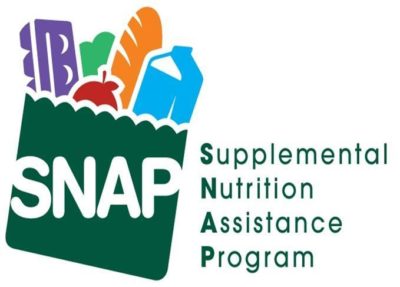 The Trump administration has proposed new regulations for SNAP benefits, an action that would remove an estimated 3 million people from the food assistance program and hurt working people whose financial lives are already precarious.
The Trump administration has proposed new regulations for SNAP benefits, an action that would remove an estimated 3 million people from the food assistance program and hurt working people whose financial lives are already precarious.
Note that I said working people. Yes, some people who receive SNAP benefits are unemployed, but well over half are employed, mostly in low wage jobs. As I’ve written previously, most lower skill, entry level positions pay $12-15 an hour. A family of four needs about $24 an hour just to be able to afford the basics of food, clothing, rent, utilities. In other words, a lot of people in America are working full-time and still eligible for benefits such as SNAP. Federal assistance benefits are subsidizing employers’ low wages.
The administration’s proposed changes would stop automatically enrolling people who receive other forms of assistance into the SNAP benefits program. Families would have to apply separately for food assistance, creating another administrative and logistical barrier that takes time and attention away from getting and keeping a good job. Hunger and stress are not a recipe for success.
Managing director of policy at the National Skills Coalition, Kermit Kaleba, said in a statement, “Our country’s safety net programs should be about improving lives – giving people ladders of opportunity to build the skills they need to access good jobs with good wages.” The proposed change will knock a few rungs off of that ladder.
The proposed changes would also de-enroll individuals who have even modest savings. Consider that earlier this year, a Federal Reserve study showed that almost 40% of Americans would struggle to cover even a $400 emergency or unexpected expense. “This rule seems like a blueprint for trapping people in poverty,” wrote Rebecca Vallas, a senior fellow at the Center for American Progress, in a must-read Twitter thread.
Let’s stick with the $400 figure. That’s approximately the monthly SNAP benefit for a family of four. A $12/hour worker would have to work most of a full extra work week per month – 33 hours – to make up for that $400 deficit, never mind save $400 for an emergency.
We asked our local partner in Des Moines to weigh in on how these changes to SNAP would affect workers in their community.
“Work reporting requirements fail to put people to work. Instead, these requirements place barriers between families who rely on public assistance supports they need in order to be ready to work,” said Renée Miller, chief community impact officer at United Way of Central Iowa. “37 percent of all Iowans are unable to meet a basic needs budget, according to the 2018 ALICE Report. Instead of causing hard working individuals to lose their coverage, we recommend solutions that support workforce training so more individuals on SNAP can build skills for the middle-skill jobs employers need filled. Other alternatives are available that would not only help Iowa families thrive, but also support our state’s critical workforce shortage.”
Renée is right. There are other alternatives available to help families thrive, not only in Iowa, but across the country. The National Fund works with more than 2,000 employers across 30+ communities to activate them to invest in their talent pipelines – because a good job is a competitive advantage. These benefits changes will hurt employers, too. Those hungry and stressed workers? They’ll be distracted and less productive. At the National Fund, we believe employers benefit from understanding the precariousness of their employees’ financial lives. This proposed policy will make that worse.
As with all regulatory changes, the public has an opportunity to weigh in on this proposal. The comment period is open until September 23, 2019. If you want to submit a comment about this proposed rule change, you can do so here.



